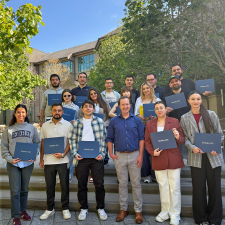Our interviewee at Iravaban.net is psychologist Mariam Hergnyan. We discussed postpartum depression, obstetric violence, and other concerning issues affecting women planning to have children.
-Please explain how postpartum depression manifests in women, and in what cases can one understand that a woman has actually started experiencing depression?
-In the modern world, sadness and melancholic states are often associated with depression, but depression has specific criteria through which it manifests. It presents itself as disturbances in volitional behavior, inhibits broad thinking, and of course, the well-known mood drops and changes.
When we look at postpartum depression, we’re talking not only about purely psychological and psychiatric issues but also physiological manifestations.
Very often, family members, relatives, and even the woman herself doesn’t recognize the fact of having depression, and there’s also a misconception that “how come we gave birth all these years without falling into depression, and now suddenly depression comes in your time?”
Depression has been known since ancient times; it wasn’t called as such, but the phenomenon existed.
-There are cases when men also develop depression after their partner gives birth, could you elaborate?
-We had a case where the father was anxious after the child’s birth, worried that he might not be able to support his family, provide them with everything, or what would happen to the family if something happened to him. The heightened sense of responsibility often transforms into anxiety manifestations, which also occurs in women.
-The World Health Organization has defined “obstetric violence” as when women are subjected to violence, humiliation, non-consensual medical procedures, etc. Are you familiar with this definition, and do women who experience such manifestations frequently visit psychologists?
-Naturally, this applies to all of medicine, because often medical assistance somewhat crosses boundaries – the boundaries of inalienable human rights. I think the problem emerges already during pregnancy; natural childbirth proceeds in direct correlation between doctor and birthing woman. If there’s no trust towards the doctor, the first problem starts here.
There have been many cases where women complained about doctors, saying the treatment was very rough, they were pushed around, forced to do certain things. More commonly, there are cases where the woman in labor is neglected.
Details in the video.
Mariam Antonyan














